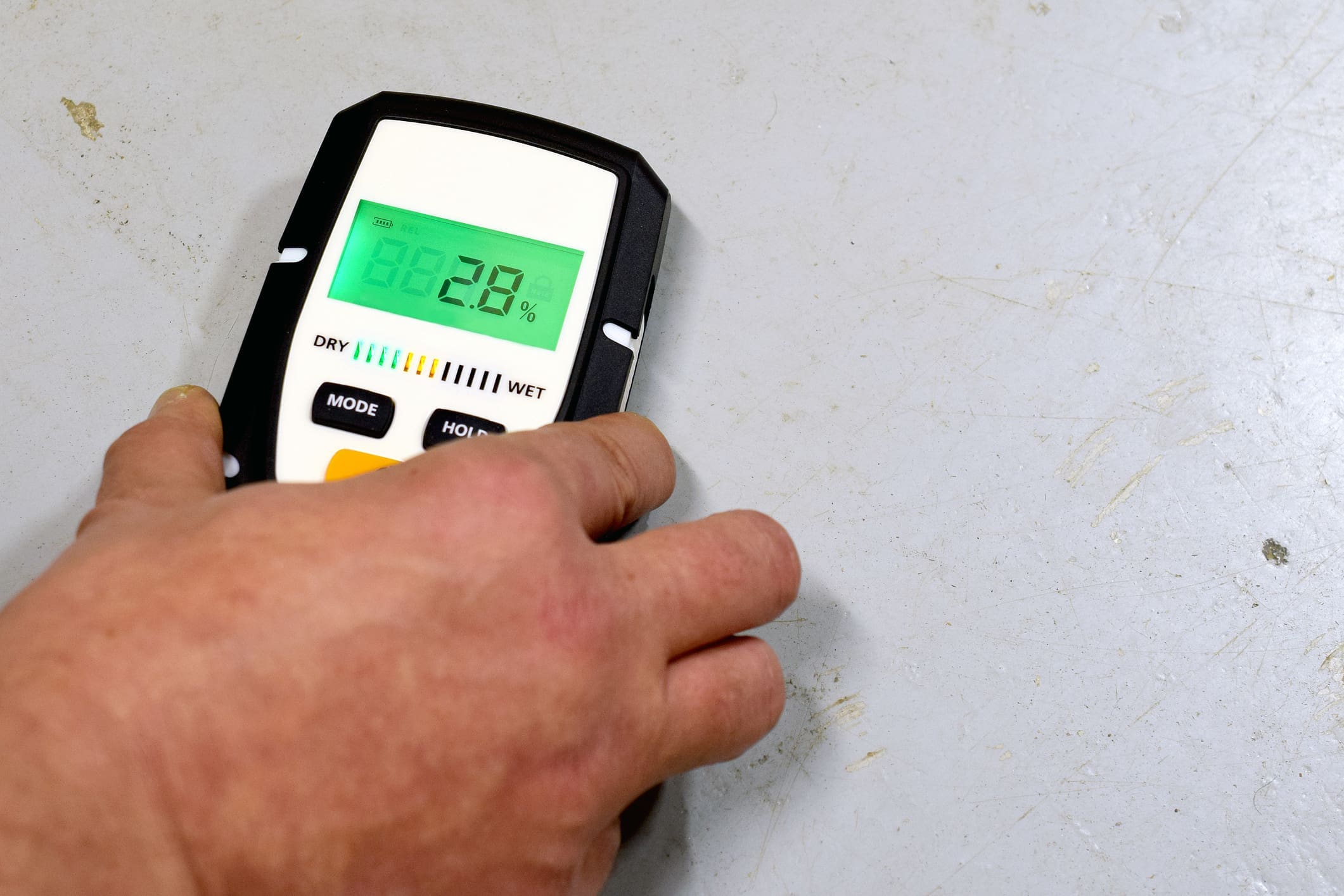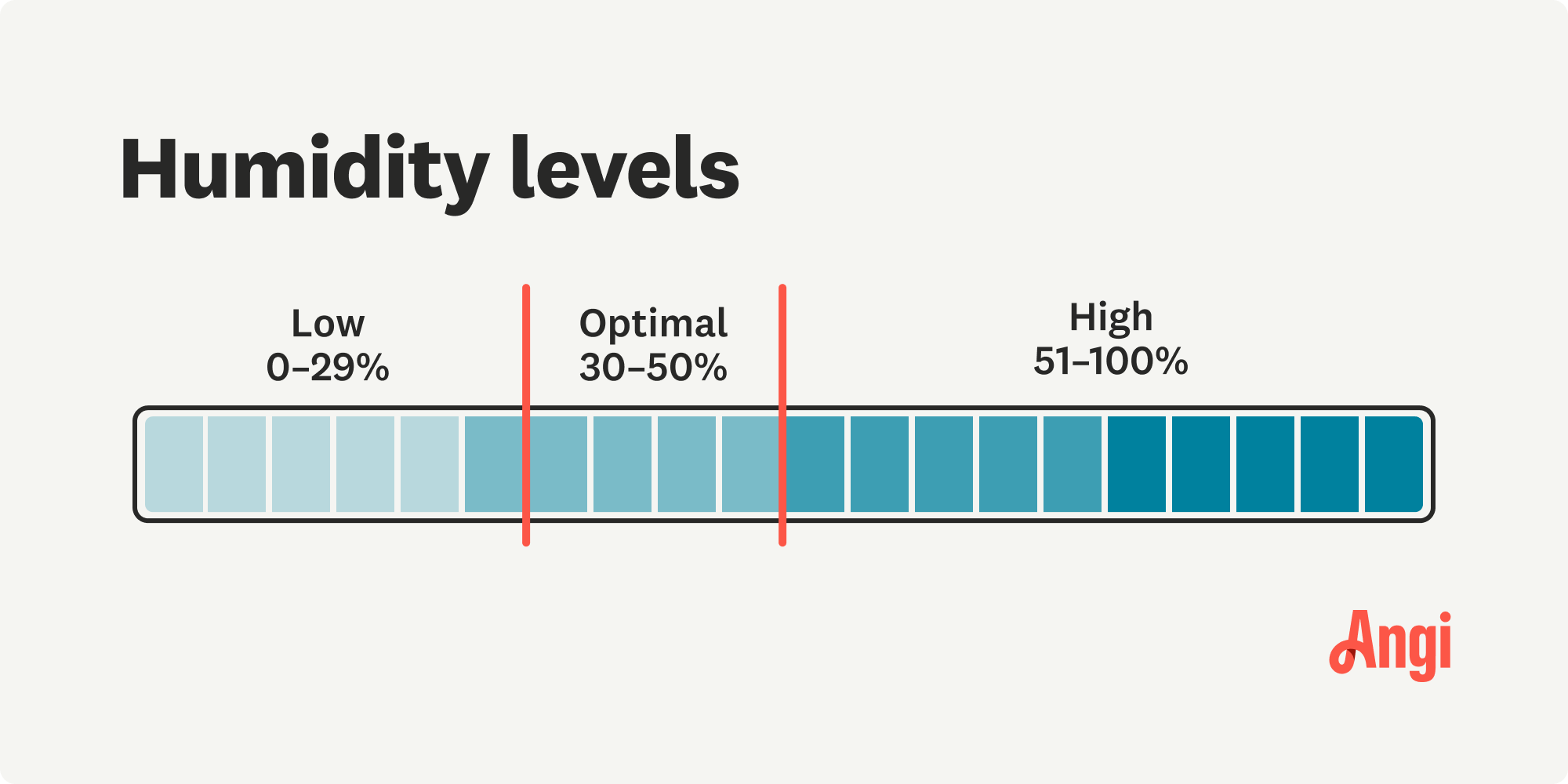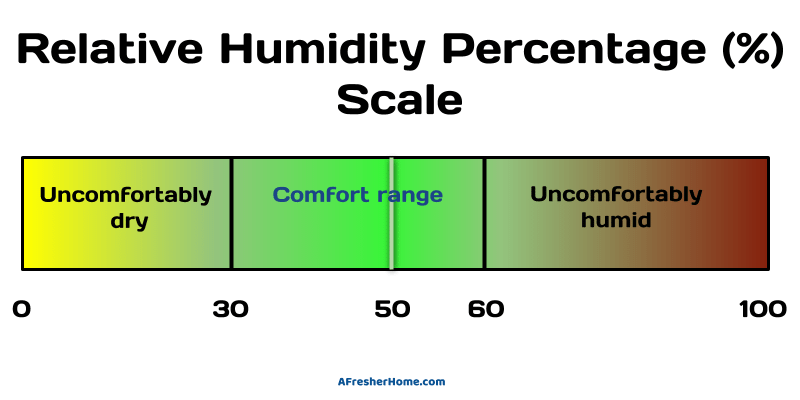What Humidity Level Should My Basement Be

Unlocking Basement Comfort: Finding Your Ideal Humidity Level
The basement, often relegated to storage or forgotten space, can be a significant source of discomfort in your home if the humidity isn't properly managed. Too much humidity fosters mold growth and musty odors, while too little can damage wooden structures and even affect your health. Striking the right balance is key to a healthy and comfortable living environment. This guide will help you understand the importance of basement humidity control and provide practical steps to achieve the ideal level.
Why Basement Humidity Matters
Basements are particularly susceptible to humidity issues for several reasons. Being underground, they're often cooler and closer to the water table. This can lead to condensation on walls and floors, creating a breeding ground for mold and mildew. Excess moisture can also damage stored items, rot wood, and attract pests. Conversely, excessively dry air can lead to shrinking wood, static electricity, and respiratory discomfort. Maintaining the correct humidity level is vital for:
- Health: Reducing mold and dust mites.
- Property Value: Preventing structural damage and protecting belongings.
- Comfort: Eliminating musty odors and creating a more pleasant living space.
- Energy Efficiency: Reducing strain on your HVAC system.
The Goldilocks Zone: What's the Ideal Humidity Level for Your Basement?
Generally, the ideal humidity level in your basement should be between 30% and 50%. Above 60%, mold growth becomes a significant concern. Below 30%, you risk drying out wood and experiencing other issues related to overly dry air. Aim for a sweet spot within that range, considering the specific climate you live in.
Here's a simple guide:
- 30-40%: Ideal during colder months.
- 40-50%: Ideal for warmer months.
Tools of the Trade: Assessing Your Basement's Humidity
Before you can tackle your basement's humidity, you need to accurately assess the situation. Here are the essential tools:
- Hygrometer: This is your primary tool for measuring humidity. Digital hygrometers are readily available and provide accurate readings.
- Moisture Meter: Helpful for detecting moisture within walls and floors, especially if you suspect a leak.
- Inspection Tools: Flashlight, screwdriver, and perhaps a borescope camera to inspect for mold or water damage in hard-to-reach areas.
Identifying the Culprits: Common Causes of Basement Humidity
Understanding the sources of basement humidity is crucial for addressing the problem effectively. Here are some common culprits:
- Leaky Foundations: Cracks in the foundation walls or floor allow groundwater to seep in.
- Poor Drainage: Inadequate grading around your home can direct rainwater towards the foundation.
- Condensation: Warm, humid air coming into contact with cool basement surfaces creates condensation.
- Lack of Ventilation: Stagnant air traps moisture, leading to higher humidity levels.
- Plumbing Leaks: Even small leaks can contribute significantly to basement humidity.
- Clothes Dryer Venting: Improperly vented dryers release moist air into the basement.
DIY Solutions: Taking Control of Your Basement's Humidity
Now that you understand the importance of basement humidity and its potential sources, let's explore some DIY solutions:
- Improve Ventilation: Open windows (when outdoor humidity is lower than indoor humidity) or use a fan to circulate air. Consider installing exhaust fans in bathrooms or laundry areas within the basement.
- Seal Cracks and Gaps: Use caulk or sealant to close up cracks in foundation walls and around windows and pipes.
- Improve Drainage: Ensure proper grading around your home to direct water away from the foundation. Clean gutters and downspouts regularly.
- Dehumidifier: A dehumidifier is often the most effective solution for controlling basement humidity. Choose a model with sufficient capacity for your basement's size. Regularly empty the collection tank or connect it to a drain.
- Insulation: Insulating basement walls and pipes can help prevent condensation.
- Vapor Barrier: Install a vapor barrier on the walls and floor to prevent moisture from seeping through.
- Check Dryer Venting: Ensure your clothes dryer is properly vented to the outside. Clean the vent regularly to prevent lint buildup.
Dehumidifier Deep Dive: Choosing and Using the Right Model
A dehumidifier is a powerful tool for controlling basement humidity. When choosing a dehumidifier, consider these factors:
- Capacity: Dehumidifiers are rated by the amount of moisture they can remove in a 24-hour period (measured in pints). Choose a model with sufficient capacity for your basement's size and humidity level.
- Coverage Area: Match the dehumidifier's coverage area to the square footage of your basement.
- Energy Efficiency: Look for models with the Energy Star label.
- Features: Consider features like auto-shutoff, adjustable humidity settings, and a continuous drain option.
Using Your Dehumidifier Effectively:
- Placement: Place the dehumidifier in a central location in the basement.
- Settings: Start with a setting of 50% humidity and adjust as needed.
- Maintenance: Regularly clean the filter to ensure optimal performance.
- Draining: Empty the collection tank regularly or connect the dehumidifier to a drain.
When to Call a Professional: Recognizing the Limits of DIY
While many basement humidity issues can be addressed with DIY solutions, some problems require professional intervention. Call a qualified HVAC technician or foundation specialist if you encounter:
- Significant Foundation Cracks: Large cracks or shifting foundations require structural repairs.
- Persistent Leaks: If you can't identify or stop a leak, a professional can diagnose and repair the problem.
- Extensive Mold Growth: Large-scale mold infestations require professional remediation.
- HVAC System Issues: If your HVAC system is contributing to the humidity problem, a technician can diagnose and repair the issue.
Cost Considerations: Budgeting for Basement Humidity Control
The cost of addressing basement humidity can vary depending on the severity of the problem and the solutions required. Here's a general cost breakdown:
- Hygrometer: $15 - $50
- Caulk and Sealant: $5 - $20
- Dehumidifier: $150 - $500
- Vapor Barrier: $0.50 - $2 per square foot
- Professional Mold Remediation: $500 - $5,000+ (depending on the extent of the infestation)
- Foundation Repair: $500 - $10,000+ (depending on the severity of the damage)
These are just estimates. Always get quotes from multiple contractors before committing to any major repairs.
Safety First: Important Precautions
When working on basement humidity issues, always prioritize safety:
- Wear Protective Gear: Wear gloves, a mask, and eye protection when dealing with mold or potential contaminants.
- Ventilate the Area: Ensure adequate ventilation when using chemicals or sealants.
- Electrical Safety: Be careful when working with electrical appliances near water. Never touch electrical cords with wet hands.
- Consult Professionals: When in doubt, consult a qualified professional.
Troubleshooting Common Issues: A Quick Reference Guide
Here's a quick reference guide to help you troubleshoot common basement humidity problems:
Problem: Musty odor. Possible Causes: Mold, mildew, poor ventilation. Solutions: Clean the area, improve ventilation, use a dehumidifier.
Problem: Condensation on walls and floors. Possible Causes: High humidity, poor insulation. Solutions: Use a dehumidifier, improve insulation, seal cracks and gaps.
Problem: Visible mold growth. Possible Causes: High humidity, leaks, poor ventilation. Solutions: Clean the area (if mold is minor), use a dehumidifier, repair leaks, improve ventilation. For extensive mold, call a professional.
By understanding the causes of basement humidity and implementing the appropriate solutions, you can create a healthy, comfortable, and functional space that adds value to your home. Remember to prioritize safety and consult professionals when necessary.










